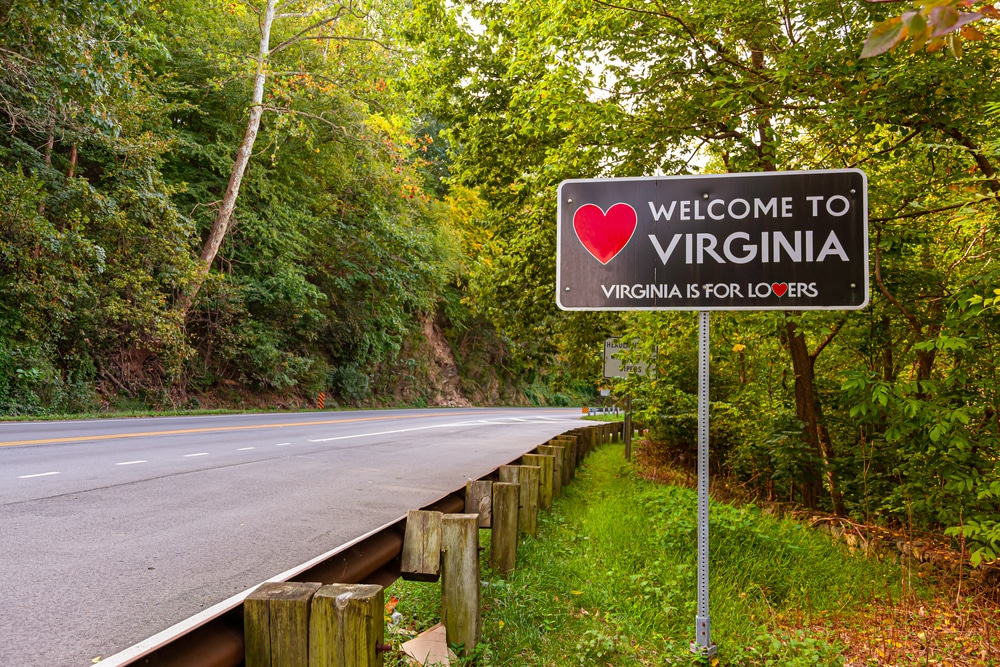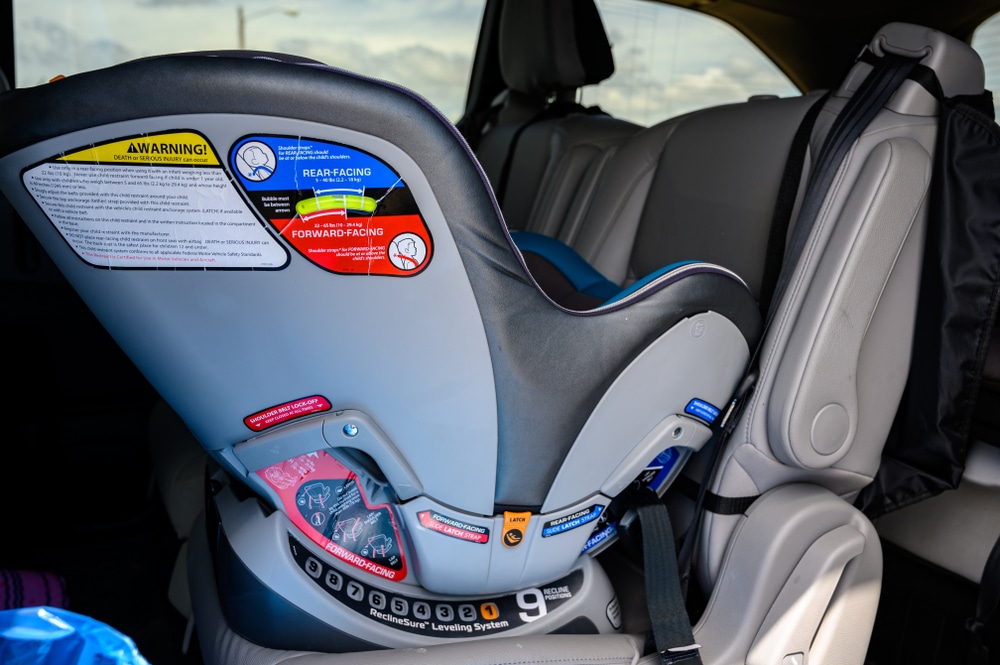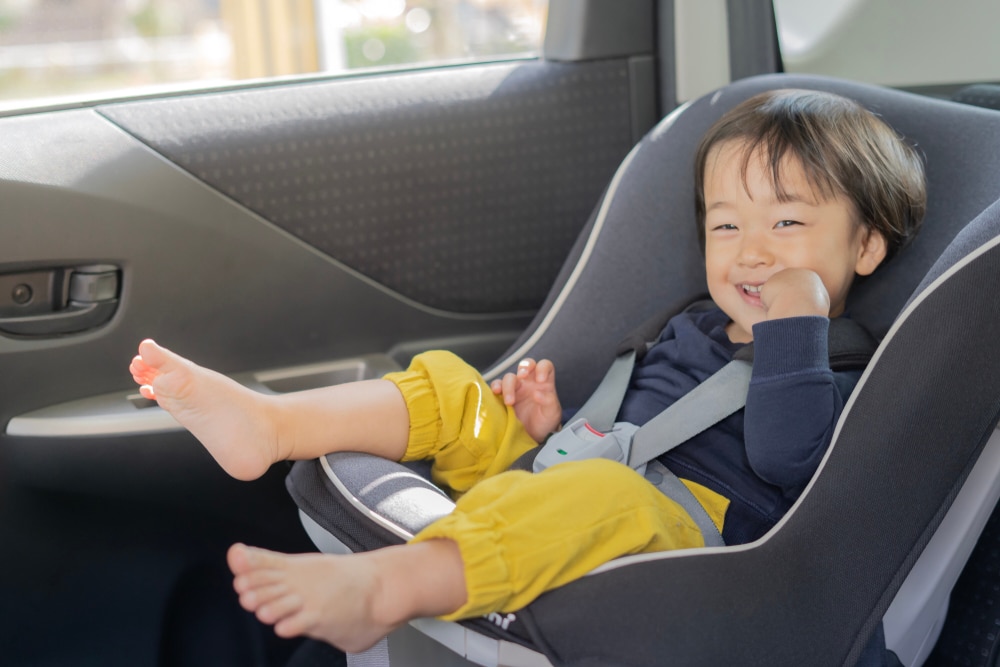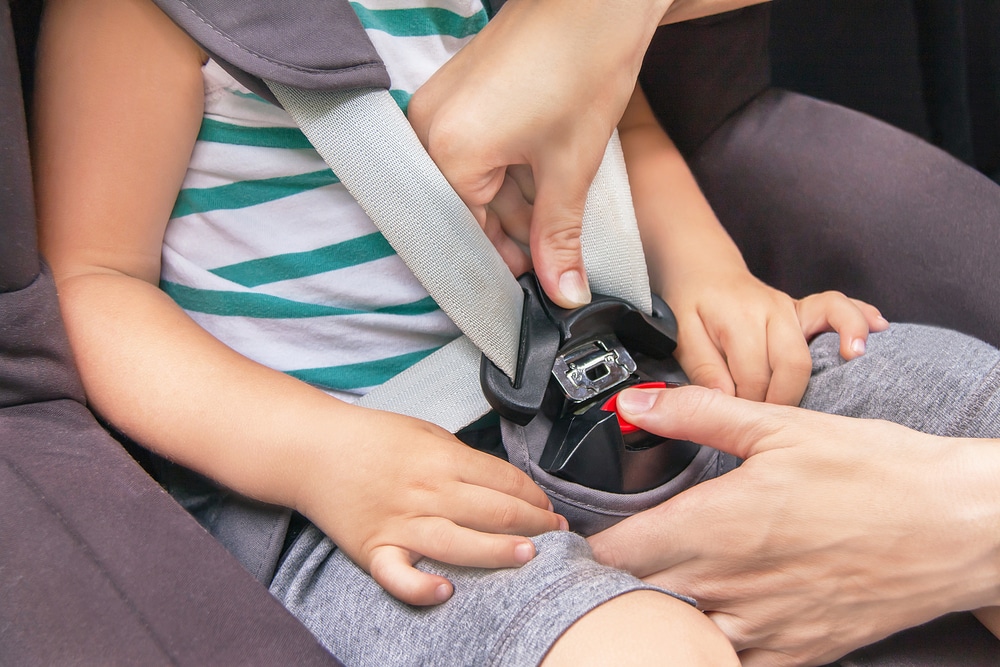Virginia has strict car seat laws that all drivers must follow. Failing to do so can be an expensive mistake. Whether you’re a new parent or just want to brush up on the regulations, here’s what you need to know.
Disclaimer: It’s important to note that this is only a guide and not legal advice. Every step is taken to ensure the information is accurate, but state laws can change. It’s also best to consult an expert if you are involved in a civil or criminal case regarding Virginia car seat laws.

Virginia Car Seat Laws: General Information
The state’s child restraint device law is part of the Code of Virginia Chapter 10 Article 13 that requires anyone under the age of 8 to use a safety seat that meets the Department of Transportation’s standards.
The law focuses on the age of the child, along with the proper use of the safety seat.
Infant Seats

Virginia law requires all toddlers two or younger to use a rear-facing car seat. It should not be placed in the vehicle’s front passenger seat, especially if there is an airbag. The force of the airbag opening can seriously injure children.
Children under two can phase-out of a rear-facing car seat if they meet the manufacturer’s weight requirements. According to the National Highway Transportation Safety Administration and The American Academy of Pediatrics, the weight limits average between 40 to 50 pounds. Toddlers over 50 pounds can safely and legally graduate to a front-facing car seat.
Toddler Seats

Children two and older that weigh less than 50 pounds will still need to use a rear-facing car seat. When your toddler reaches the weight limit for the seat, it’s time to switch to a front-facing one.
Front-facing car seats should use a 5-point harness. It’s not a current legal requirement under car seat laws in Virginia, but it is strongly encouraged. The 5-point harness restricts toddlers’ movements. You won’t have to worry about curious fingers hitting door locks and window buttons. The harness keeps your child inside the car seat’s protective shell, and also distributes impact force evenly across the body.
You also want to use the front-facing safety seat in the back. Deploying airbags can cause serious injury to children.
Youth Seats

Toddlers grow out of car seats surprisingly fast, but it doesn’t mean they are ready for seat belts. After children outgrow their front-facing car seat, they’re ready for a booster seat. VA car seat laws require all kids under 8 years to use a booster seat.
The child needs to be properly secured with a seat belt. The seat belt should cross over their upper thighs, with the shoulder belt across the chest.
The booster seat should also be placed in the back and not in the front passenger seat. According to the seat belt Law in VA there is no weight or height requirement to phase out of a booster seat, only the child’s age.
Seat Belts

By a child’s eighth birthday, most kids are ready to ride in a vehicle with only a seat belt. Parents do what to ensure the seat belt fits properly to ensure their child’s safety.
Some signs to look for are:
- The child’s feet touch the vehicle floor, and their knees can bend over the edge of the seat.
- When the seat belt is fastened the shoulder belt rests across the child’s chest, between the neck and shoulder.
- The lap belt fits snugly across their hips and upper thighs.
Most children can safely graduate to an adult seat belt by their eighth birthday. However, if your child isn’t tall enough for the car seat belt it’s best to continue using the booster seat.
The seat belt law in VA also allows kids eight years and older to sit in the front passenger seat.
Seat Belt Laws in Virginia
Children and teens ages 8 to 18 must wear a seat back. The safety belt must fasten securely and fit the child.
Section 46.2-1094 also requires all adult drivers and front-seat passengers to wear a seat belt when the vehicle is in motion.
Penalties for Failing to Comply
Virginia seatbelt laws list the penalties for drivers that fail to comply with chapter 10 article 13 of the Virginia Code. The fine for the first infraction is $50 and steadily increases for each one. The second time you are issued a citation for failing to use a child safety seat, the penalty increases to $500.
Currently, the penalty is capped at $500, but other child welfare agencies may be involved after multiple violations.
Transporting a child with medical issues that prohibits the use of a safety seat is legal with a written exemption from a physician. Without the written statement, there is a $20 fine.
All monies collected from Virginia car seat laws are donated to programs that help underserved families purchase safety seats for their children.
Replacing Car Seats After an Accident
Virginia law requires parents to replace the car seat after an accident that renders a vehicle undrivable. It’s also a good idea to get a new safety seat if the damage is on the child’s side. It means the car seat absorbed most of the impact.
Exemptions from Virginia Car Seat Belt Laws
The Virginia Code Chapter 10 Article 13 allows for a few exemptions.
Taxis
Children seven years and younger can ride in taxis and rideshare vehicles without a booster or safety seat. These types of vehicles are exempt from Virginia seatbelt laws, but it doesn’t mean it’s a good idea not to bring one.
Commercial Vehicles
Registered commercial vehicles are exempt, but with a stipulation. Drivers must have a valid CDL license.
Antique Cars and Trucks
Vehicles manufactured before December 31, 1967, do not have to comply with seat belt laws.
School Buses
Public and private school buses are not required to come with seat belts. Newer buses are including seat belts in their construction, and the exemption may no longer apply in a few years.
Executive Vehicles
Vehicles that are solely used for executive purposes are not included in the seat belt law.
Emergency Vehicles and Situations
Emergency vehicles are not expected to have child seats or safety belts. The priority is the care of the patient on the stretcher. The exemption may also apply to parents that are rushing their child to the doctor or emergency room. A ticket for non-compliance may still be issued but it can be dismissed with paperwork from the attending physician.
All other vehicles must have seat belts for children and teens under the age of 18.
Learn More About Virginia Car Seat Laws
A brief explanation gives you a general idea of Virginia seatbelt laws. The Virginia Code Chapter 10 Article 13 is concise on its guidelines, but other regulations may affect how it’s enforced.
If you have questions an attorney can help, especially if you are in the middle of a legal case.
You may also have questions about child safety seat restraints or their weight limit. The manufacturer is the one that can answer these questions.
Car seat laws in Virginia are clear. Everyone needs to be belted in where they’re riding in a vehicle.






